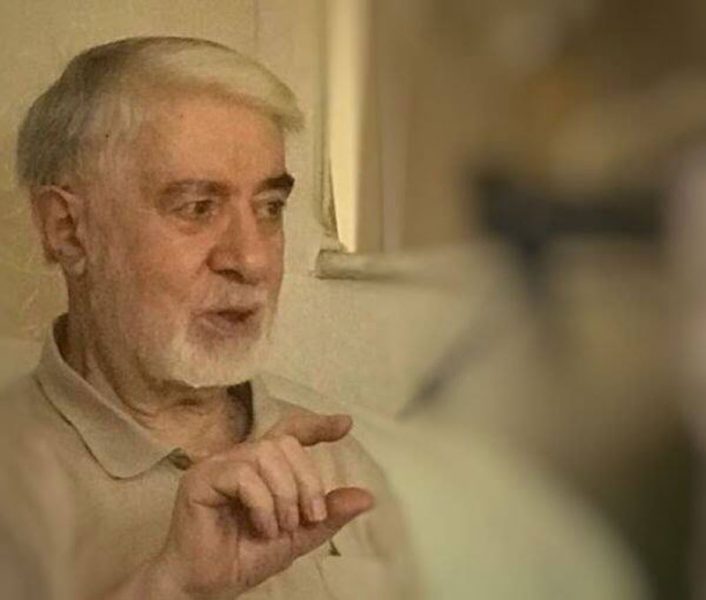From the Dishonored Commander to the Defenders of the Shrine
Mir-Hossein Mousavi stated in this declaration that the great sin of our government is tampering with the truth of meanings. Every majestic name is associated with the most disgraceful crimes. The defense of the shrine, which means protecting the heart of the believer against the slightest tendency towards oppressors, is applied to shedding blood in foreign lands to strengthen the foundations of a child-killing regime. He pointed to millions of refugees and hundreds of thousands of deaths in Syria, the infamy of Hezbollah in Lebanon, the emergence of ISIS, ethnic and tribal wars in Yemen, the inclination of Arab countries to bond with Israel, and the slogan of the Shia Crescent as evidence of the sinister intentions of this deviation. He added that the disasters resulting from these actions for Iran and the region all stem from a major error, which is tampering with the true essence of the people’s will. People are thirsty to be free and to choose for themselves, and their choice will undoubtedly be in the interest of humanity in general, with any idea and belief, and will be to the benefit of national interests and the sovereignty of the people.
Mir-Hossein Mousavi recalled the Ashura of 2009 and the employment of ill-intentioned thugs to slash the youth of the people, and he added, what was the fate of that dishonored commander who confessed to and boasted about this crime, other than that his life would be wasted in exile for another tyrant? He considered this fate a lesson for the survivors, to understand that the despot demands everything from them in exchange for the morsels he throws before them.
Mir-Hossein Mousavi
«سزای آن سردار بیافتخاری که به این جنایت اعتراف و مباهات کرد چه بود، جز آنکه جانش در غربت به قربانی مستبدی دیگر تلف شود»
Mousavi’s reference was to Commander Hemmati’s admission of using thugs who, during the Ashura of 2009, spilled the blood of many election protesters with swords and knives.
However, another part of Mousavi’s statement is about the defenders of the shrine, whom the majority of people refer to as the defenders of Assad. Ali Saeedi, the representative of the Supreme Leader of the Islamic Republic in the Revolutionary Guards, said in September 2017 that preserving the person of Bashar al-Assad is among Iran’s red lines in Syria.
Twelve years after the Arab Spring, Mir-Hossein Mousavi precisely directed society towards what seems necessary, as the Middle East has grown weary of Iran’s increasing interference in countries like Lebanon, Iraq, and Syria, and perhaps the new generations of these countries can no longer tolerate the presence of individuals like the defenders of the shrine.

